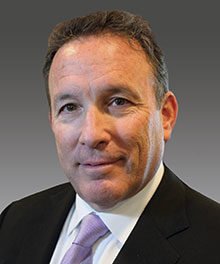Diversity in the Middle Market

The racial equality gap in this country has continued to make headlines since the protests and riots started in May following the death of George Floyd. Black Lives Matter protestors took over City Hall in Rochester, N.Y., on Tuesday and the local police chief was fired, after the public release of body camera footage of Daniel Prude being subdued and arrested with a hood over his head. Prude died of complications from asphyxiation a few days later.
It’s simply tragic that incidents like this keep surfacing. We still haven’t evolved, as a nation, past the shameful and primitive state of race relations that continues to be a smear on our democracy.
As business leaders, we can’t always influence what happens outside of our companies, but we do have the power to make a difference, one decision at a time, within our own firms and industries. One outcome is that many business leaders, including myself, have stepped up our focus on diversity, equity & inclusion.
A lot of companies seem to be thinking along these lines. More than half of middle-market CEOs – the nation’s job creators – have made increasing racial DEI a top strategic priority and are examining their policies and procedures in this light, according to the latest Marcum-Hofstra CEO Survey. I’d like to see the percentage closer to 100%, but it’s a start.
Of course, strategies and policies, no matter how innovative, don’t do much good unless we act on them. Fortunately, the firms that are prioritizing DEI aren’t just adding lofty statements to their HR manuals: 78% said they already had a formal program in place to advance these values. Marcum is certainly one of them.
CEOs are staying committed at a time many are also fighting hard to get their firms through the Covid economy. The CEO Survey found that 43% of leaders whose firms received a Paycheck Protection Program loan or a Main Street Lending Program loan earlier this year would have had to reduce their staff or budget without it.
Manufacturers, an important client base for us, have been especially hard hit by all of the business interruptions since March. The NAM Manufacturers Survey for Q2 just found that only 50% of large manufacturers and about 73% of small and midsize firms were fully operational. Only 34% of respondents felt the outlook for their company was positive – the lowest percentage since the Great Recession. No doubt many will be forced to make difficult calls about whether to reduce staff very soon.
We’re fortunate that our business at Marcum stayed healthy. Accounting firms were deemed “critical infrastructure” by state and federal governments, and, thanks to our strategic crisis management plan, we were able to go remote overnight when we shut our office doors in March to wait out the pandemic.
Still, I’ve had to make some tough decisions of my own lately.
Last week I shared with you how strongly I believe it’s time to get back to the office, work alongside our colleagues and immerse ourselves in office culture for a host of reasons. (Thank you for the notes many of you sent.)
Monday, I announced internally our plan to bring most of our team back to our offices starting October 1, subject to local ordinances and density limits. Six months after going all-remote, we share the unenviable position with the entire business community of having to balance ongoing operations with the individual needs and circumstances of our associates, in order to continue meeting our obligations to our clients – while keeping the health and safety of our team members and their families our #1 priority.
As we determine we can bring Marcum team members back to work safely, you can expect to find them onsite in their local offices on an increasing basis according to regional office density guidelines.
We know that with some schools now taking students back in person and others teaching virtually (or a combination of those), working parents face incredible pressures, and some will have to make difficult decisions of their own, too.
Fortunately, Marcum was an early adopter of alternate work arrangements (AWA) – an important tool in our arsenal for building a diverse team and retaining talent. For those team members who just can’t come back in person, we’ll do our best, if we can, to figure out how to keep them on the Marcum team with a plan that works for them as well for us.
We already offered compressed workweeks, core hours, flexible schedules, part-time schedules, and telecommuting. Our HR department is prepared to work with every member of our team to find creative solutions so we can get everyone back at their desks as quickly as possible.
These are challenging times, but we will get through them as we always have – and come out even stronger on the other end. You can bet on it.
Rosh Hashanah, the Jewish New Year, begins this evening and ends on Sunday evening. If you observe the holiday, L’Shana Tova.
Stay safe, stay healthy and remember we are all in this together.
